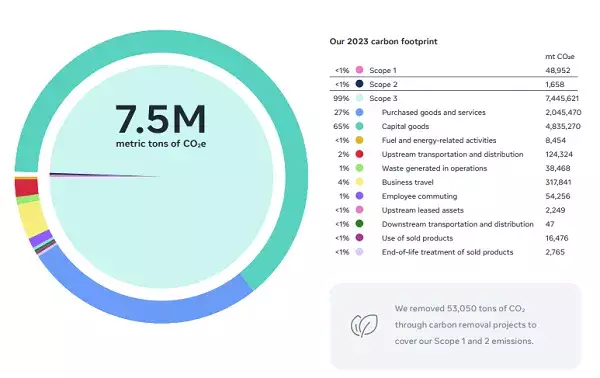Meta, the tech giant formally known as Facebook, has once again faced the public eye with the release of its latest “Responsible Business Practices Report.” Spanning 144 pages, this report delves deeply into Meta’s strides and ambitions across several domains—particularly artificial intelligence (AI), the metaverse, environmental sustainability, supply chain diversity, and user protection. However, beneath the polished surface of this comprehensive document lies a need for a critical perspective on whether Meta’s assertions hold true as genuine efforts or merely present a smokescreen to deflect scrutiny in an increasingly questioning world.
At the forefront of the report is Meta’s ambitious drive toward integrating generative AI models into its various operations. The company claims to be democratizing access to AI tools, which raises a crucial question: Will this foster genuine equity, or does it reinforce a digital divide? While Meta emphasizes the importance of accessible AI, we must scrutinize what this truly entails. The reality is that access to cutting-edge technology is unequally distributed across different regions. If Meta’s intentions lean toward solely commercial benefits or maintaining user engagement, the promise of socio-economic equality through democratized AI remains questionable.
Moreover, in its push for immersive experiences, such as augmented and virtual reality, Meta envisions a future where the metaverse becomes the next social media paradigm. The call for a more immersive digital existence is appealing, but there is a risk that this could overshadow the societal challenges that these technologies can exacerbate. By monopolizing the metaverse space, Meta could potentially entrench its position further and limit competition, which goes against the grain of its purported commitment to a democratic tech landscape.
Privacy Initiatives: A Double-Edged Sword
Privacy continues to be a sore point for Meta, and the report claims significant investment of over $5.5 billion since 2019 in enhancing its privacy framework. While initiatives aimed at identifying and mitigating privacy risks are commendable, one must consider the track record Meta has regarding user data. The company has been embroiled in various controversies related to data misuse, leading to a lack of trust among users. Simply pouring resources into privacy programs does not automatically equate to cultural or operational transformation within the company. Unless these initiatives translate into clear, tangible outcomes, they risk being seen as public relations maneuvers rather than genuine commitments to user safety and privacy.
Meta’s environmental impact is another area highlighted in the report. As social media and technology companies face increasing criticism for their environmental footprints, Meta touts its sustainability goals. However, the sincerity of these efforts is often challenged by skeptics who argue that such claims could be categorized as “greenwashing.” Raising awareness of ecological impacts without implementing meaningful changes in operational practices only serves to assuage criticism rather than prompt substantive action. For Meta to be taken seriously in this arena, it needs to not only articulate ambitious sustainability objectives but also rigorously measure and report progress transparently.
Perhaps one of the report’s more contentious themes touches on Meta’s political engagement policies. The mention of financial support for candidates aligning with its corporate interests raises ethical eyebrows and fuels ongoing debates concerning political lobbying in the tech sector. Such a practice not only blurs the lines between corporate influence and democratic processes, but it also poses questions regarding accountability and transparency in the tech community.
Overall, while the “Responsible Business Practices Report” purports to provide an outlook on Meta’s positive strides, a careful exploration unveils the complexities and potential pitfalls of its initiatives. For every visionary strategy, there exists an underlying scrutiny that the company needs to confront seriously. The challenges posed by rapid innovation in AI, pressing privacy concerns, the risk of greenwashing in sustainability efforts, and the intertwining of corporate interest and political engagement underscore the need for balanced engagement rather than simplified narratives. Only by addressing these nuanced aspects can Meta hope to reshape its image and truly commit to a responsible business ethos.

